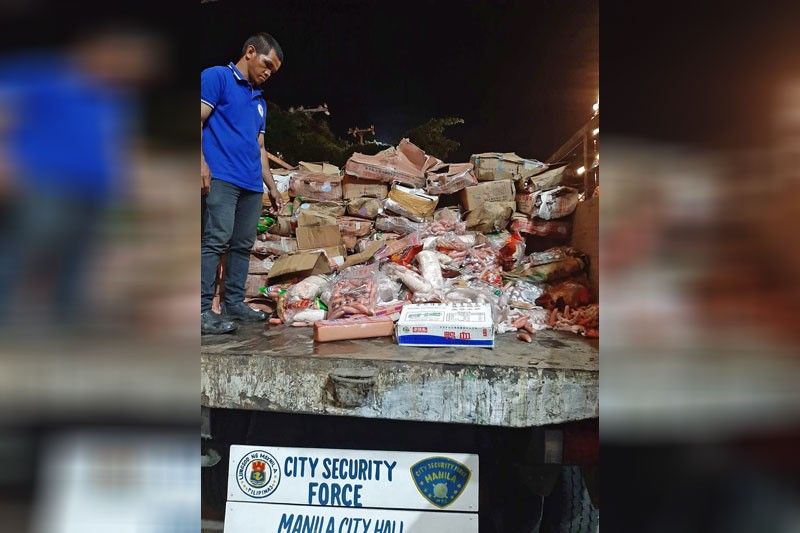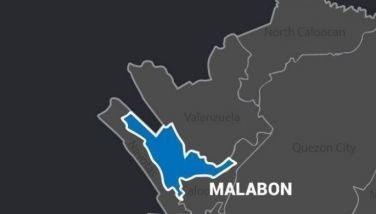Trader turns over 2 tons of ‘hot meat’ from China

MANILA, Philippines — A businessman yesterday surrendered to the city government of Manila more than two tons of meat products smuggled from China.
Nicanor Santos, who heads the Manila Veterinary Inspection Board (VIB)’s special enforcement squad, said they received a call from GGF Corp. owner Ramon Tañada yesterday telling them he would surrender the meat products and would like to secure a business license.
The squad took custody of 2,454 kilos of black chickens, lamb slices, duck hearts, duck legs, duck tongues, pork chorizo, sliced ham and bacon following a routine inspection of GGF’s facility.
Santos said these products were usually distributed to restaurants patronized by upper-class customers.
Investigators learned that GGF bought its products from the Vifel cold storage facility in Navotas. The facility is accredited by the National Meat Inspection Services. “We will coordinate with NMIS to check on the storage facility and where the products they were selling were coming from and how it gets into business establishments in Manila,” Santos said.
Tañada also surrendered receipts proving the firm purchased products from Vifel.
“How come an accredited cold storage facility is selling smuggled banned Chinese meat products? Is this legal?” Santos asked, adding that he is waiting for Mayor Isko Moreno’s order to deliver the meat products to the Manila Zoo.
The VIB has confiscated more than 10 tons of smuggled Chinese products since Moreno assumed office in July.
Misdeclared food, clothes
Meanwhile, the Bureau of Customs yesterday seized around six shipping containers of misdeclared food products and used clothing with an estimated value of P11.34 million at the Manila International Container Port.
The containers were seized after JL Twins Enterprises declared its shipment as textile auxiliaries but turned out to be Arabica coffee beans.
Great Prosperity Import and Export Corp. misdeclared its corned beef shipment as chili sauce and cereals.
FiveJhoch Enterprises’ shipment of used clothes was seized after the firm declared it to be new clothes.
The containers came from Hong Kong, Korea and Brazil.
The consignee firms’ officials face charges of violating tariff and food regulation laws and a law banning the commercial importation of used clothing. – With Robertzon Ramirez
- Latest
- Trending































